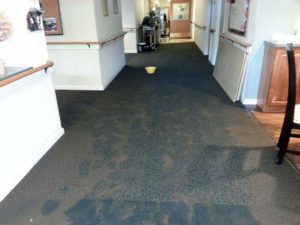 When you experience water damage, there’s no time to waste when it comes to proper water extraction.
When you experience water damage, there’s no time to waste when it comes to proper water extraction.
That’s why Project X Restoration in Denver is available for any water or flood emergency 24 hours a day, 365 days a year.
Our goals are to stop the water damage before it spreads and get your home or business back to its original condition with our water extraction services.
Shut Down the Source of Water
The first step in proper water extraction is to find the water source and shut it down. Next is an assessment of the entire situation, including all damages and safety issues like asbestos. At Project X, we develop a customized restoration plan and provide a free, detailed estimate.
Protect Against Health Issues
Standing water from flooding or a burst pipe can cause health problems, and sometimes in severe cases, even death. That’s why it’s best to allow the experts to retrieve and salvage your possessions. It may be possible to restore damaged papers, books and photographs if you get them soon enough. We can also salvage and recycle materials or dispose of them properly.
Remove All Standing Water
Clean-up starts with proper water extraction services. This typically utilizes safety gear for all technicians and specialized equipment such as submersible pumps, truck-mounted vacuums, and other apparatus as necessary. Extracting the majority of standing water from an affected area will help stop water damage from spreading and mold from growing.
At Project X, we also use infrared cameras to assess saturation and find any water that may have gotten behind your walls or in the ceiling. With the extraction complete, we’ll decide whether it’s necessary to remove your carpet and carpet pad to keep the integrity of your subfloor.
Dry Out the Area and All Materials
Once the water is removed, it’s time to completely dry your floors, walls, and other items. This is a crucial step in water extraction services, especially if you want to avoid warping, swelling, mold, and other ongoing issues that will undermine restoration efforts.
Using industrial-strength fans and dehumidifiers, the process reduces the humidity and dries out your carpet, furniture, drywall, wood, and other materials. And highly specialized instruments will be used to assess moisture levels in the floors, walls, and other areas until they reach a proper level.
Dehumidification enables you to salvage and repurpose as much of the original materials as possible. This reduces your costs while restoring the interior of your home to its pre-flood condition.
Cleaning
Once everything is dried out using proper water extraction methods, returning your home or business back to normal will take a lot of cleaning. At Project X, this is one of our specialties. We provide the necessary cleaning techniques, equipment and tools needed to restore as many items as possible.
Remove Any Lingering Odors
Finally, a portable filtration system (air scrubber) can be used to remove any offensive odors that may linger after water extraction services. We sanitize and disinfect using industrial-grade cleaning agents, as well as discard any damaged items with your approval and according to insurance guidelines.
Standing water can be devastating. It can cause damage and disease that only gets worse the longer you wait. So, call Project X Restoration in Denver 365 days a year, 24 hours a day. Our professionals can be on-site anywhere in the Denver metro area in an hour or less.
And proper water extraction services can get your home or business back to its original condition. Give us a call, we’re here to help.
